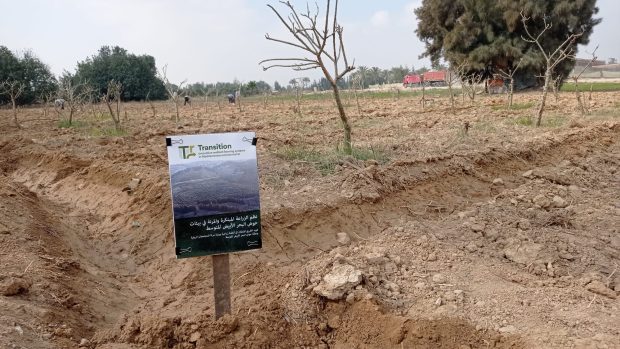TRANSITION project meets in Alexandria
The aim was to visit some of the pilot tests that are being carried out in this country under the guidance of the SRTA-City research centre

Representatives of the BETA Technology Centre of the UVic-UCC travelled last week to Alexandria, Egypt, to meet with the other members of the TRANSITION project consortium. The aim was to visit some of the pilot tests that are being carried out in this country under the guidance of the SRTA-City research centre. TRANSITION is a project funded by Europe through the PRIMA Programme, which focuses on the potential of agroforestry systems in the Mediterranean region to move towards more resilient agroecosystem models in the face of global change.
To combat the effects of global change, agroecosystems in the Mediterranean region require a significant transformation from conventional agriculture towards long-term sustainable systems, including agroforestry systems and combined farming. Based on a participatory approach, the TRANSITION project works to provide a good understanding of the barriers limiting the implementation of new practices in agroforestry and mixed farming systems in the Mediterranean region. From there, the project hopes to contribute to the development of new tools for decision-making and the elaboration of a regional roadmap well aligned with the priorities of stakeholders in the territory.
The TRANSITION project involves ten partners from six different countries and focuses on five study areas (three in the northern Mediterranean region: France, Italy, Spain; and two in the southern Mediterranean: Algeria, Egypt), with climate modelling experts from Greece.
Field visits
After a consortium meeting to start addressing the last year of project implementation, all partners had the opportunity to visit the experimental fields of SRTA-City, where innovative agroforestry systems are being tested in Egypt. The visit focused on the plots where the feasibility of combining Jatropha trees with horticultural production is being tested.
The second part of the field visits focused on various agricultural areas around Alexandria, so that project members could learn first-hand about the socio-economic and environmental realities faced by local farmers.
